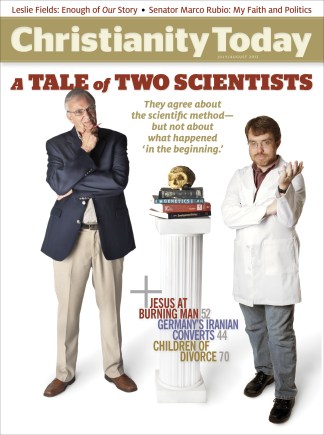It is certainly not necessary to think that the six days spoken of in that first chapter of the Bible are intended to be six days of 24 hours each. We may think of them rather as very long periods of time.”
These are not the words of a progressive Christian, desperately trying to make room for evolution in his biblical worldview. No, this comes from the pen of the famous opponent of liberalism, J. Gresham Machen. Writing in 1937, he was not alone among the conservatives who vigorously contended with liberalism. The great apologist of biblical inerrancy, B. B. Warfield, said much the same thing decades earlier: “I do not think that there is any general statement in the Bible or any part of the account of creation, either as given in Genesis 1 and 2 or elsewhere alluded to, that need be opposed to evolution.” While he rejected naturalistic evolution, he did believe that evolution was one method God used (along with creation-out-of-nothing and “mediate creation,” a combination of creation and natural process).
However, for many Christians today, denying the literal reading of Genesis 1 would be to deny inerrancy and open the door to heterodoxy. How did we get to this point?
Quarrel about Relatives
Before Jesus was “conceived by the Holy Spirit,” Aristotle, Plato, Ptolemy, and Galen had written wise treatises on scientific questions. As these books entered medieval Europe, Christian scholars recognized their genius in treating science. While they spotted some theological landmines (e.g., Aristotle argued for the eternity of the world and had no room for divine providence), these scholars argued vigorously for the classical sciences. Roger Bacon, the outstanding scientist of the 1200s, borrowed a theme from Augustine when he said science could be the faithful handmaiden of theology.
Fast-forward half a millennium: geologist James Hutton postulated in 1785 that the Earth must be much older than previously supposed for mountains to have eroded and sediment to have formed new ocean rocks. Important works by various authors followed, each in one way or another suggesting a slower development of the earth. Then came the blockbuster, Charles Darwin’s On the Origin of Species, in 1859.
But as the views of Warfield and Machen suggest, many conservative Christians had no problem with the theory of evolution if God’s providential hand was involved. The problem began when people started applying the biology to society, advocating social Darwinism, and when human ancestry was increasingly tied to apes. This struck many Christians as a stab at human dignity, the notion that we were created in the image of God. As one 1896 tract put it,
I do not wish to meddle with any man’s family matters, or quarrel with any one about his relatives. If a man prefers to look for his kindred in the zoological gardens, it is no concern of mine; if he wants to believe that the founder of his family was an ape, a gorilla, a mud-turtle … he may do so; but when he insists that I shall trace my lineage in that direction, I say “No Sir!” … I prefer that my genealogical table shall end as it now does, with “Cainan, which was the son of Seth, which was the son of Adam, which was the son of God.”
This was one concern that prompted the State of Tennessee to ban the teaching of evolution in its schools. The subsequent suit, argued by two lawyers savvy in public relations and media and uncompromising in their own divergent views—William Jennings Bryan and Clarence Darrow—made the 1925 Scopes Trial a national sensation. Though upheld in appeals courts, the Tennessee law lost in the court of public opinion. This seemed to signal the larger culture’s rejection of the Christian faith altogether. Ever since, many Christians have been deeply concerned that evolution is the crack in the rock of faith that eventually shatters it into a pitiful pile of sand.
Debate renewed
The origins discussion lay dormant for three or more decades, but in 1961, Henry Morris and John Whitcomb Jr. published The Genesis Flood, which argued for a literal reading not only of the Flood account but also of Genesis 1 and 2, reinvigorating the creationist movement. That movement has since split into six-day creationists and old-earth creationists, as well as other finely tuned variations. In 1991, Phillip Johnson entered the fray with Darwin on Trial, initiating the intelligent design movement—which has its own supporters and detractors in Christian and scientific communities.
Today, the devout of various persuasions continue to argue their views, each believing that the future of the faith hinges on the outcome of this battle. If it were merely a question of science, it would not be so contentious. But each scientific fact shapes some theological point, and every theological truth requires us to examine the meaning of every scientific breakthrough. The debate may be with us always, at least until that day when we learn how all truth is one in Christ.
Related Elsewhere:
To read the best Christianity Today articles on creation, evolution, and intelligent design, check out our latest eBook, The Origins Debate, at CTeBooks.com/ct/origins-debate. For more, check out our cover story on “A Tale of Two Scientists” and “Illustration: America’s View on Evolution and Creationism.”










